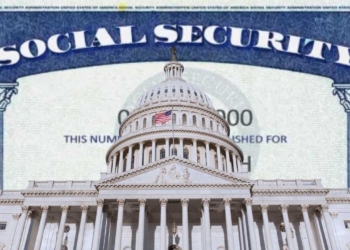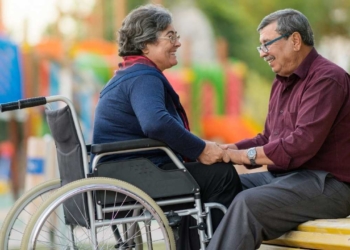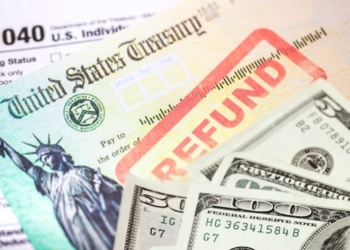In New Jersey, a state where property taxes are among the highest in the country, averaging over $9,000 per household annually, a crucial support network for low- and middle-income residents has been strengthened: a dedicated tax refund program is being used by thousands of beneficiaries.
At the heart of this effort is the integration, by 2025, of three key programs: ANCHOR, Senior Freeze, and the new Stay NJ program. Most significantly, all programs can now be accessed through a single, unified application, Form PAS-1.
The ANCHOR tax refund program in New Jersey
This combined system gives special priority to homeowners age 65 and older with incomes up to $150,000, offering them up to $1,750 in direct rebates through ANCHOR, in addition to tax-increase protection through Senior Freeze.
According to official data, this relief package distributes nearly $3 billion each year, vital support that reaches more than 1.2 million households struggling with tax burdens.
To be eligible to participate in the ANCHOR program by 2025, you must meet strict criteria. The first requirement is to own or rent a primary residence in New Jersey by October 1, 2024, and to have paid the applicable property taxes by that date.
This requirement also applies to those who live in cooperatives, condominiums, or even pay prorated fees in retirement communities.
Income requirements to claim the tax refunds
Additionally, gross income reported to the state on the 2023 and 2024 NJ-1040 forms must remain within specific limits: up to $150,000 to receive the full maximum benefit, and between $150,010 and $250,000 to qualify for reduced and graduated benefits.
Second homes, vacation properties, buildings with more than four units, and properties under P.I.L.O.T. payments are excluded. For renters, the program applies to tax-taxed mobile homes, condominiums, or cooperatives, but does not cover exempt properties, university apartments, or housing managed by government or nonprofit entities.
ANCHOR tax refund: priority for the elderly and disabled
People 65 and older and those with disabilities receive priority treatment within this ecosystem of assistance. Those who turn 65 by December 31, 2024, or are recipients of Social Security disability benefits (SSDI), do not qualify for the automatic filing enjoyed by other groups; for them, manual application of Form PAS-1 is mandatory.
Although the income threshold for ANCHOR extends to $250,000, it is by keeping income at $150,000 or less that the maximum reimbursement of $1,750 is guaranteed.
The Senior Freeze program, which specifically reimburses for increases in property taxes or mobile site fees, can also be combined. It has an income limit adjusted for inflation, while the new Stay NJ program, designed for those 65 and older with incomes up to $500,000, can cover up to half of annual taxes, discounting what has already been received through other programs.
The combined tax refunds in NJ for seniors and disabled residents
Benefit amounts are calculated at year-end and formally notified by letter. For homeowners age 65 and older in the ANCHOR program, the reimbursement amounts to up to $1,750 if their income is equal to or less than $150,000, and is phased down to between $1,000 and $1,500 for the next income bracket.
Younger homeowners receive between $1,000 and $1,500, depending on their income level, while older renters can receive up to $700. The Senior Freeze benefit varies, specifically covering the amount by which taxes for the year exceed those of a “base year,” with an average that typically ranges between $1,000 and $2,000.
The Stay NJ program, which promises even greater relief, will begin payments in 2026, capped at $13,000 annually.
Delivery dates for the refund checks
Payments are distributed on a schedule that runs from September to October 2025. ANCHOR reimbursements began being sent on September 15 on a rolling basis, with most payments completed within 90 days.
However, seniors and people with disabilities who have submitted their complete applications in a timely manner could receive their funds as early as October.
Senior Freeze payments began earlier, in July, and will continue through the fall for applications still in process. To check the status of an application or payment, residents can call the helpline or use the online portal, services that remain operational as essential even in the face of potential government shutdowns.
To check the status: Call 609-826-1042 or use the online portal. These services are operating as essential, even in the face of potential government shutdowns, such as the one currently in effect across the United States.







